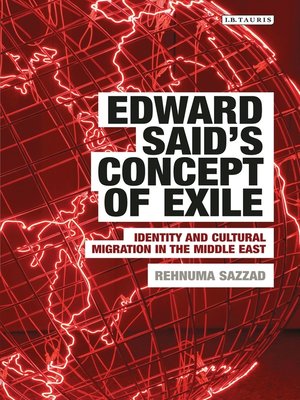Edward Said's Concept of Exile
ebook ∣ Identity and Cultural Migration in the Middle East · Written Culture and Identity
By Rehnuma Sazzad

Sign up to save your library
With an OverDrive account, you can save your favorite libraries for at-a-glance information about availability. Find out more about OverDrive accounts.
Find this title in Libby, the library reading app by OverDrive.



Search for a digital library with this title
Title found at these libraries:
| Loading... |
Edward Said was an exiled individual – the 'out of place' Palestinian in the USA. He saw the consequences of the 1948 dismantling of Palestine and the establishment of Israel through his parents' experiences and through the collective statelessness imposed on the Palestinians. His own personal experience of exile intensified when he moved to the USA. Yet despite the significance of exile to Said's lifeand work, no scholarship has yet focused on this theme in his writings or traced its ongoing applicability and importance. Rehnuma Sazzad fulfils this pressing need in literary and cultural research by providing the first comprehensive definition of Said's theory of exile and reveals its legacy in relation to five Middle Eastern intellectuals: Naguib Mahfouz, Mahmoud Darwish, Leila Ahmed, Nawal El Saadawi and Youssef Chahine. By selecting a novelist, poet, feminist, filmmaker and essayist, Sazzad shows how, for Said, the ideal intellectual is a metaphorical exile, demonstrating a willing homelessness. This book creates a portrait of redoubtable intellectual practice and in the twenty-first-century context, when the frontiers of belonging are being constantly redrawn, Edward Said's Concept of Exile adds new depths to discourses of resistance, home and identity.






